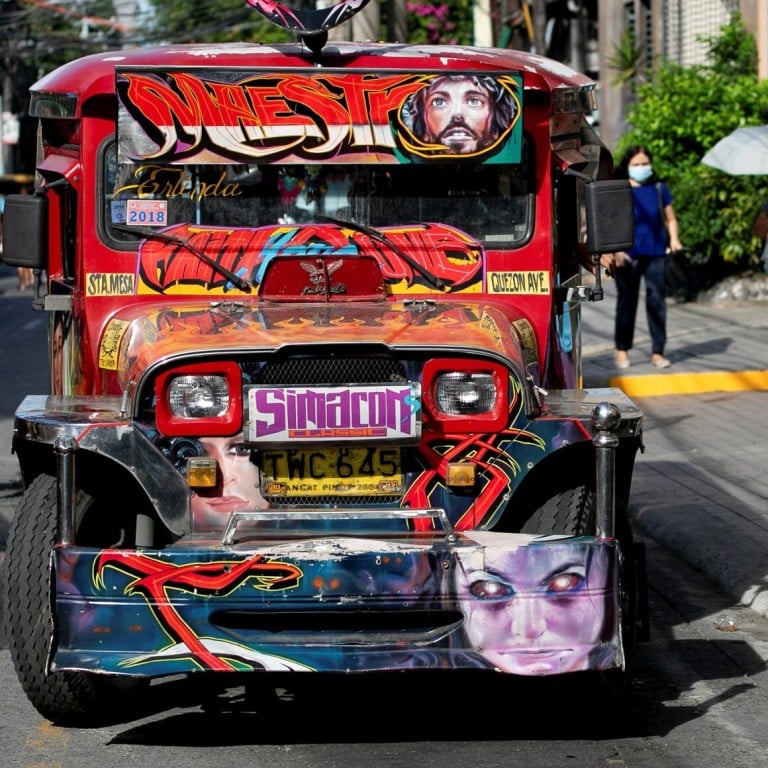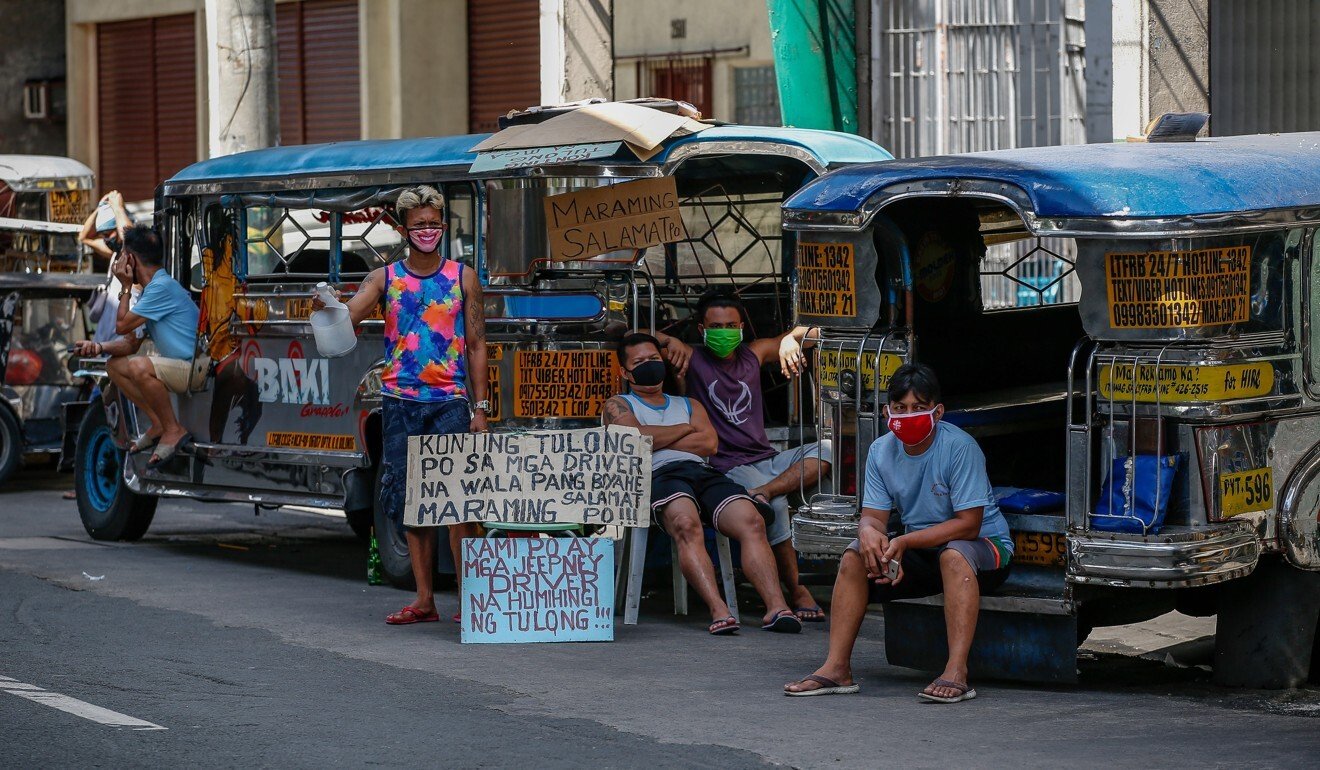
Coronavirus: Philippine commuters cheer as affordable jeepneys restart transport services
- Some 55,000 of these large, colourful trucks used to crawl through Manila’s gridlocked roads on a typical day before the country went into lockdown
- Dubbed the ‘king of the road’, a jeepney fare is typically about 9 pesos, or US$0.18, cheaper than trains, taxis or motorised tricycles
Dubbed “the king of the road”, an estimated 55,000 of these large, multicoloured trucks, used to crawl through Manila’s gridlocked roads on a typical day before being forced to a halt 15 weeks ago when the government imposed a coronavirus lockdown.
Just 6,000 were back in business on Friday, operating at half capacity under strict social distancing rules. In pre-pandemic times, jeepneys routinely carried up to 15 passengers who sat knee-to-knee on twin benches in the windowless vehicles, choked by exhaust fumes.

“I’m very happy we are now back on the road. This is our only source of income,” said driver Celo Cabangon, whose truck is decorated with Japanese and Philippine flags, Bible verses and the logo of US sci-fi film Transformers.
Under the new rules, passengers must also undergo temperature checks before boarding and shield themselves from one another with face masks and plastic sheets. The Philippines has recorded 40,000 coronavirus cases, and 1,280 deaths.
Commuter Alejandra Carable welcomed the jeepney’s return. “Our expenses are too much without jeepneys. We can save much more now that the jeepneys are back.”
A jeepney fare is typically about 9 pesos (US$0.18), cheaper than trains, taxis or motorised tricycles, which were allowed back on the road a month ago when authorities started easing one of the world’s longest and strictest lockdowns.
A phased return to work has been chaotic without jeepneys, with commuters stranded and some companies unable to provide sufficient private transport.
The first jeepneys were surplus army jeeps left behind by the US military after World War Two. Most are festooned with religious slogans or horoscope signs and are in poor shape. (Writing by Martin Petty Editing by Raissa Kasolowsky)

